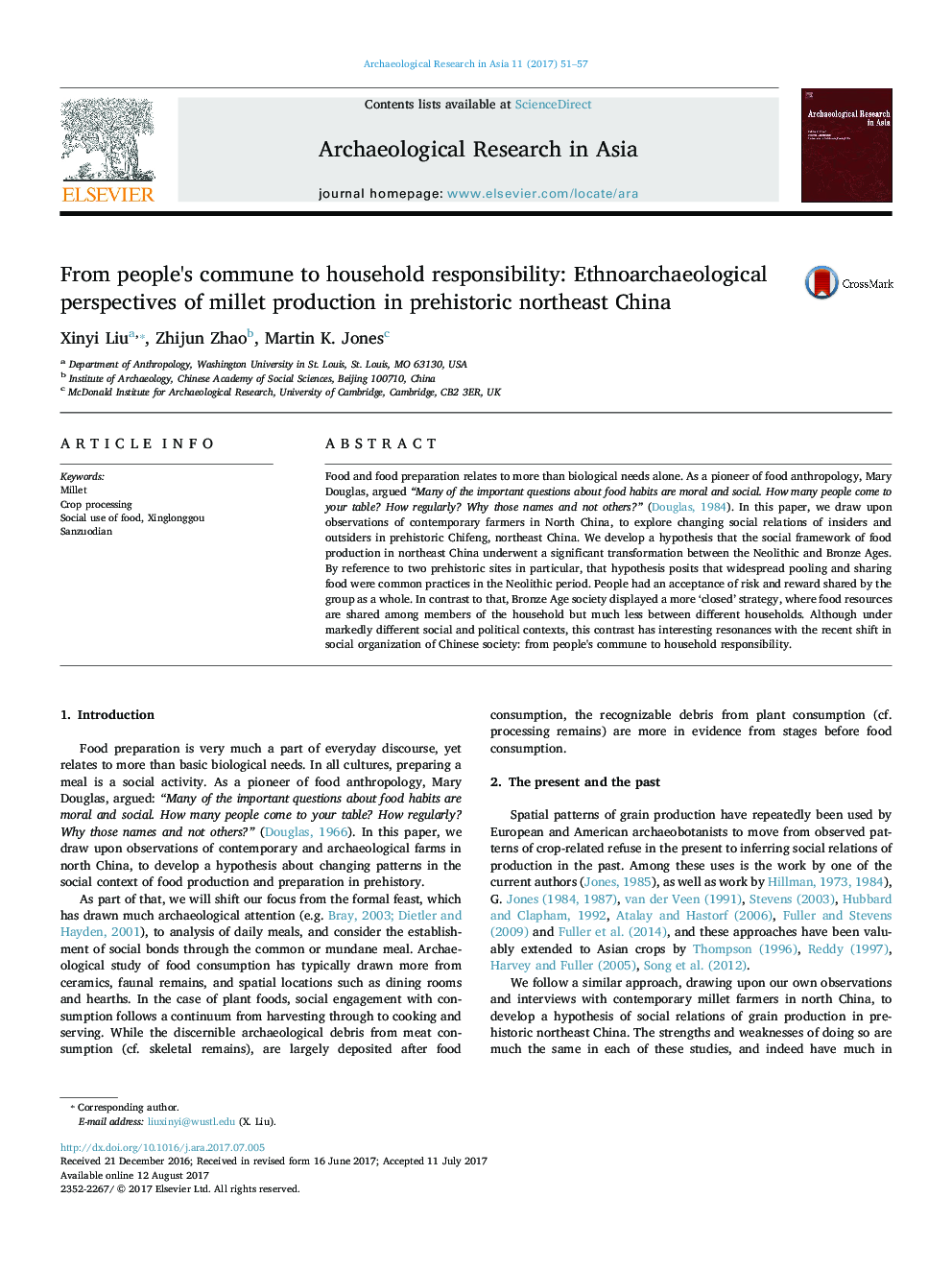| کد مقاله | کد نشریه | سال انتشار | مقاله انگلیسی | نسخه تمام متن |
|---|---|---|---|---|
| 5111877 | 1483761 | 2017 | 7 صفحه PDF | دانلود رایگان |
عنوان انگلیسی مقاله ISI
From people's commune to household responsibility: Ethnoarchaeological perspectives of millet production in prehistoric northeast China
ترجمه فارسی عنوان
از کمون مردم به مسؤولیت خانوار: دیدگاههای اخلاقی و اخلاقی تولید ارزن در قرون وسطی چین
دانلود مقاله + سفارش ترجمه
دانلود مقاله ISI انگلیسی
رایگان برای ایرانیان
کلمات کلیدی
موضوعات مرتبط
علوم انسانی و اجتماعی
علوم انسانی و هنر
تاریخ
چکیده انگلیسی
Food and food preparation relates to more than biological needs alone. As a pioneer of food anthropology, Mary Douglas, argued “Many of the important questions about food habits are moral and social. How many people come to your table? How regularly? Why those names and not others?” (Douglas, 1984). In this paper, we draw upon observations of contemporary farmers in North China, to explore changing social relations of insiders and outsiders in prehistoric Chifeng, northeast China. We develop a hypothesis that the social framework of food production in northeast China underwent a significant transformation between the Neolithic and Bronze Ages. By reference to two prehistoric sites in particular, that hypothesis posits that widespread pooling and sharing food were common practices in the Neolithic period. People had an acceptance of risk and reward shared by the group as a whole. In contrast to that, Bronze Age society displayed a more 'closed' strategy, where food resources are shared among members of the household but much less between different households. Although under markedly different social and political contexts, this contrast has interesting resonances with the recent shift in social organization of Chinese society: from people's commune to household responsibility.
ناشر
Database: Elsevier - ScienceDirect (ساینس دایرکت)
Journal: Archaeological Research in Asia - Volume 11, September 2017, Pages 51-57
Journal: Archaeological Research in Asia - Volume 11, September 2017, Pages 51-57
نویسندگان
Xinyi Liu, Zhijun Zhao, Martin K. Jones,
